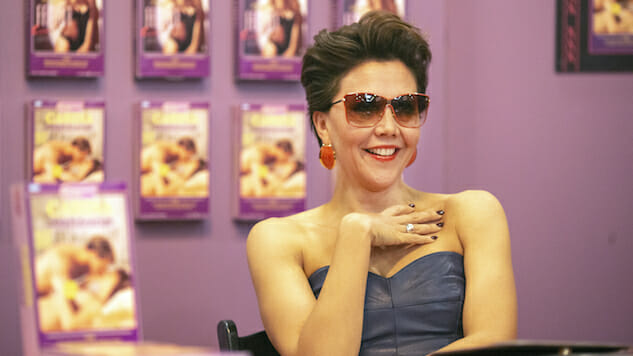The Deuce‘s Final Season Revels in Beauty, Grime and Reaganomics
Photo Courtesy of HBO
If Stranger Things is pure uncritical nostalgia that wants to transport audiences back to the ‘80s with its neon-tinted glasses, The Deuce’s ‘80s-set final season is brutal anthropology. Half-decade jumps have become the norm for HBO’s adult industry deep-dive drama, allowing its story to become a scarlet-collared examination of America at its most basic and honest intersection of sex, capitalism, and the art in between it all. A history of a country (through the evolution of its politics, technology, and culture) can also be found in how it deals with sex—and HBO’s The Deuce has been baring it all since Episode One. Three seasons in and creators David Simon and George Pelecanos continue to illuminate the big stuff by flicking the switches of a thousand small moments.
Since The Deuce is saying Big Things about a microcosm over time—a niche of the oldest industry—it can see how the cycle returns to stability. Season Two was righteous female rebellion, as entrepreneurship and autonomy set out with cash and artistry in their sights. Season Three is harsh patriarchal Reaganomics tightening its french-cuffed grip. I watched three packed episodes of an eight-episode season where porn is booming, the VCR is taking over, and AIDS is replacing rampant love with rampant fear. Amateur porn (or porn made to look amatuer) democratizes the medium in a post-pimp world. New York is grimier on the outside and L.A. is grimier on the inside.
-

-

-

-

-

-

-

-

-

-

-

-

-

-

-

-

-

-

-

-

-

-

-

-

-

-

-

-

-

-

-

-

-

-

-

-

-

-

-

-








































